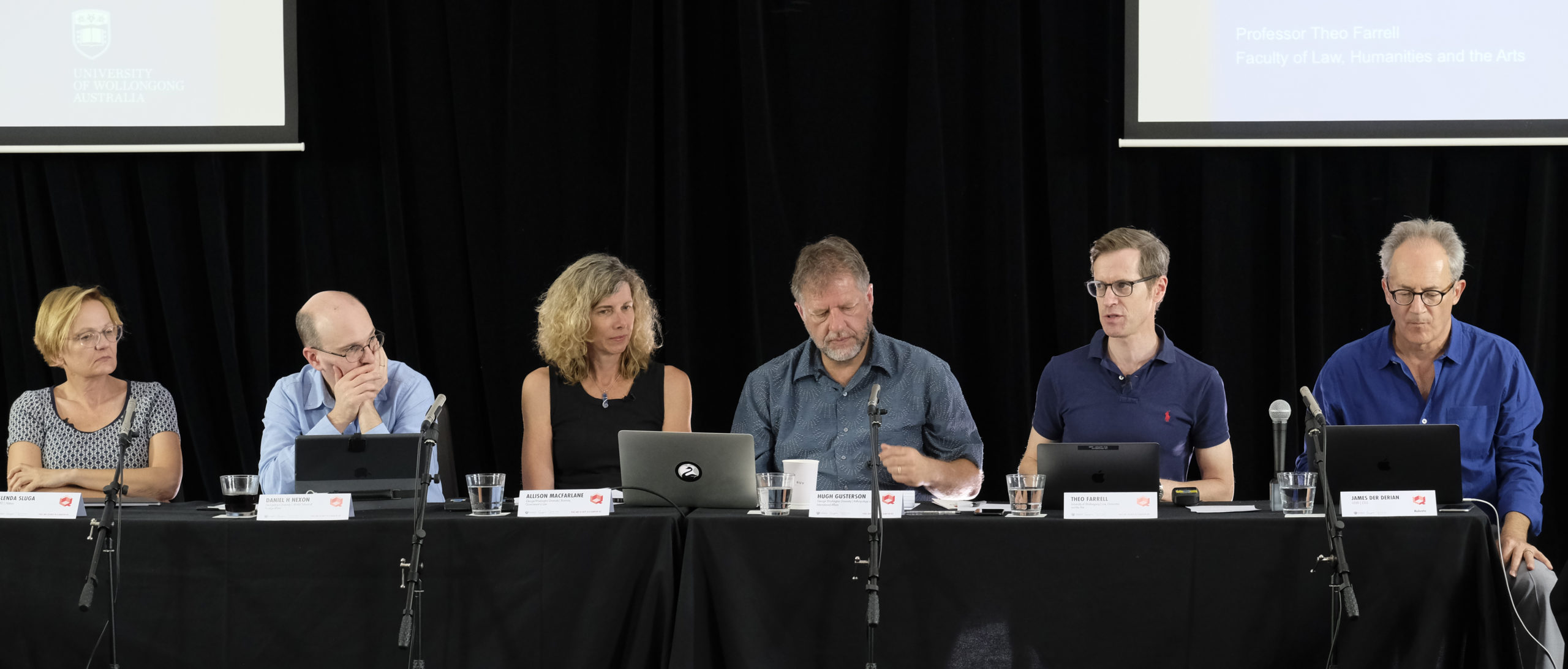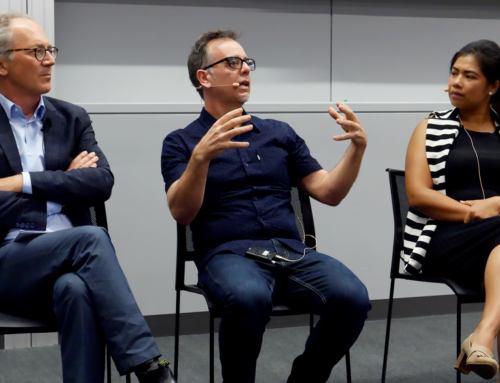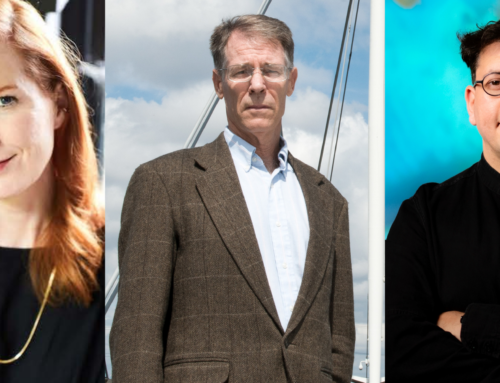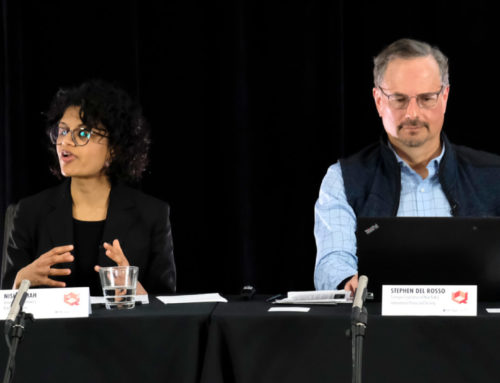Susannah Lai & Alex Vipond
This panel was moderated by James Der Derian and featured Theo Farrell (University of Wollongong), Hugh Gusterson (George Washington University), Allison Macfarlane (George Washington University), Daniel Nexon (Georgetown University) and Glenda Sluga (USYD).
This panel operated as a more free-flowing final discussion similar to the opening forum. The panel raised numerous questions about the role of science in history and its wider context. Hugh Gusterson related anecdotes of the composition of academic funding in the United States where the military and defence establishment are responsible for up to half of total research and development funding. He claimed that this distorts what technologies receive funding and how they are applied. Allison Macfarlane continued this thread looking at the flow of information between the public and private sectors, highlighting the excellent basic and advanced science work of nuclear labs, but their inability to share research because of security issues. They cautioned that sustained investment will be needed for the US to capitalise on quantum but that different models of success may be needed compared to the Cold War.
Farrell and Nexon delved into questions of how states and empires have shaped science over the centuries since the enlightenment. Will the current scientific revolutions in artificial intelligence, quantum mechanics and other fields mirror past revolutions or form new iterations as they converge with the fourth industrial revolution? They asked if the transformational hype associated with previous technologies, such as electricity, had been realised in the time promised or whether it took much longer for its non-linear effects to ripple through society. Scientists and scholars alike sided with the non-linear actualisation of science’s potential.
Sluga and Nexon pondered how the geographic distribution and use of quantum technologies would affect the conception of power in the 21st century. What sort of power could quantum technologies bring to new establishment of powerful private sector companies and governments investing in them? Most likely, technology companies will have powers previously only held by governments but without regulation or oversight.
Can these tools be used for the benefit of humanity in a system that is walking away from international institutions towards nostalgic mirages of times past? In the past, trade and technology spread through imperialism and state rivalry. Will the global foundations of scientific progress be able to withstand the forces acting on them? These questions remain unanswered.
The panel ended on a central theme of the conference: what does it mean to be human? Panellists wanted to know if the quantum revolution would result in a new quantum consciousness and change humanity’s relationship with time. The short answer is yes.







Leave a Reply